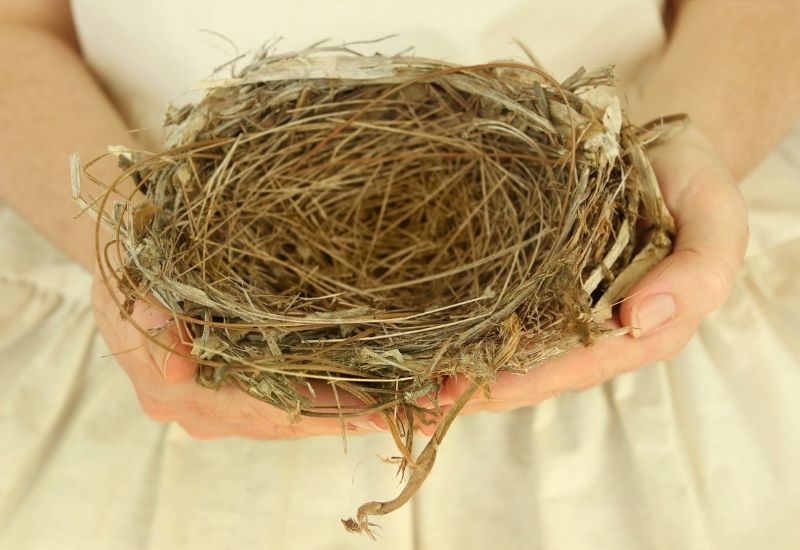Empty nest syndrome is characterised by feelings of grief, a sense of loss of control in and anxiety about the lives of the children who have left and loss of purpose. Let’s go through this in a bit more detail.
Starting with the last point. You spent 20 years focusing on the needs of your youngsters. It’s been an incredibly important job and so much of your identity has become tied up in that. So it’s not just a loss of the focus on them it’s the loss of your identity as somebody in charge and at the centre of everybody’s world. That is a huge bereavement. It will bring with it freedoms as well as the feeling of a yawning absence. The contradictory qualities of those two feelings and flowing between them can create confusion within. Remember it’s not “either… or…” it’s “…both and…”. It’s important not to judge these feelings. They are natural and will take their time to resolve.
Likewise the loss of influence or control over what your children are doing can create high anxiety. You’ve been keeping them safe and facilitating their growth for so long and now they are out of your sight and you cannot keep a check on them. It’s a deep bond of love that is being stretched across time and distance. That is bound to have an effect on your mood and peace of mind! You can download a free guided meditation called “The Foundation for Love” when you sign up to my newsletter. It is designed especially to support you to regain equilibrium and calm when you are going through an emotional time, so do use that if you need to.
It may be that you don’t really know who you are as a person anymore, now you are not a full- time mother. Your relationship with your partner may have become centred around being co-parents. It can be very hard to make the adjustment back to being together as life partners again in a more romantic, connected way. You may have grown apart. You may have become fixed in particular roles and behaviours in parenting that are outmoded now it’s just the two of you. You may even be re-evaluating if you want to spend the next half of your life together. If things have gone awry, it might be time to consider parting. I would highly recommend reading the book, “Conscious Uncoupling” by Katherine Woodward Thomas as a starting point for separating with kindness and dignity, keeping your mental and emotional health to the fore, protecting your children from emotional fallout and keeping your funds for you rather than spending them on fighting through divorce lawyers.
This time when your children leave home is a powerful time of re-evaluation. It’s the time to take stock, to see what you want in your life now and what you don’t, who you want to be, what parts of yourself you want to express now and what contribution you might want to make in the wider world. You will likely need a rest and some time to reflect and process.
It’s good to start with a structure. List all of the things that you enjoy doing. List all of the things that you used to enjoy doing before you had children that may have fallen by the wayside. What really brings you joy? This may be a good thing to ask your partner to do as well and then share your findings together. I’d recommend reading together “Eight Dates” by John Gottman and Julia Schwartz Gottman, celebrated Relationship Specialists. It will help you deepen trust, manage arguments well, sweeten your emotional and physical connection and create a fulfilling future. For yourself, look at what you dream of and write that down too, whether or not it feels within reach.
It’s a time to start a whole new era and you have the choice at this point to shape it as you want it to be. Writing down your dreams gets them on the radar of your mind and naturally opens you up to new possibilities.
